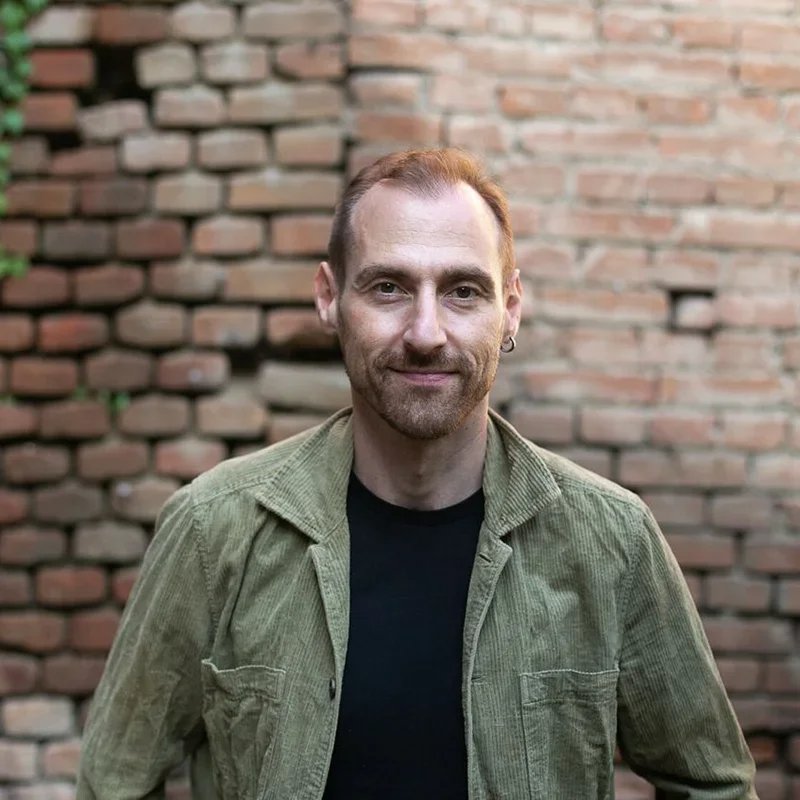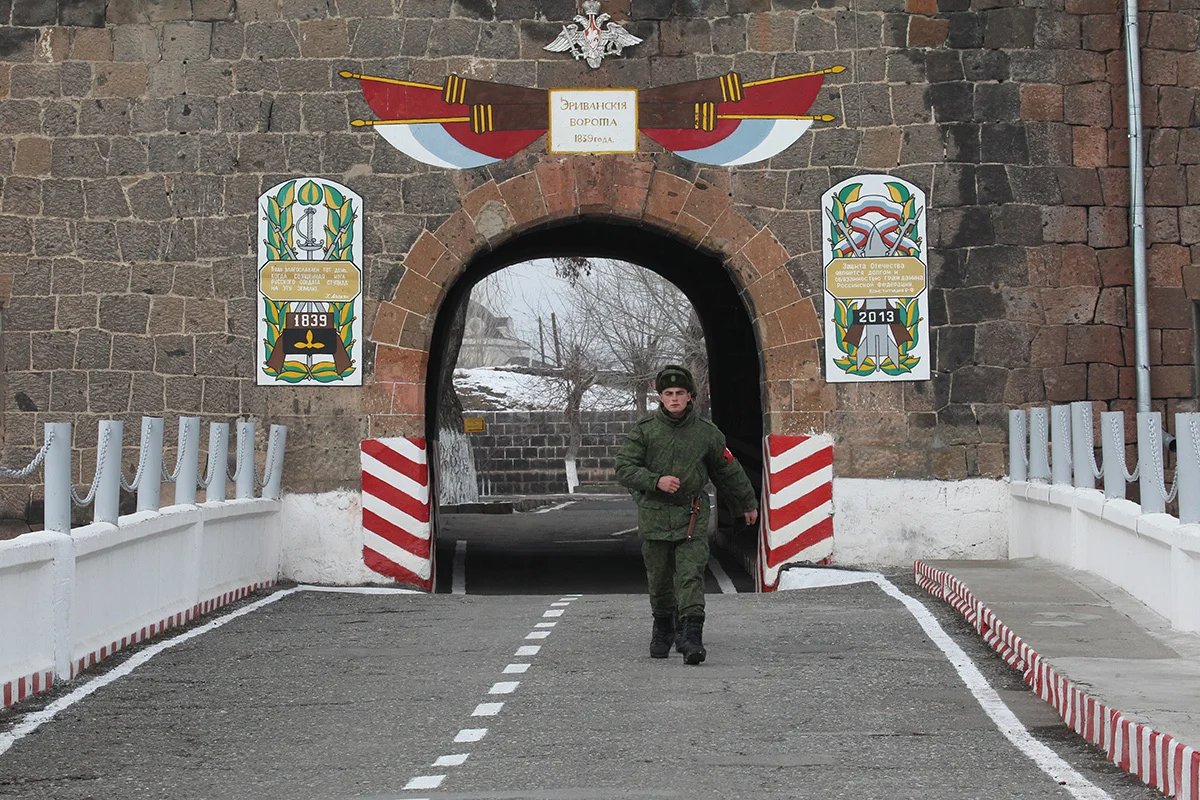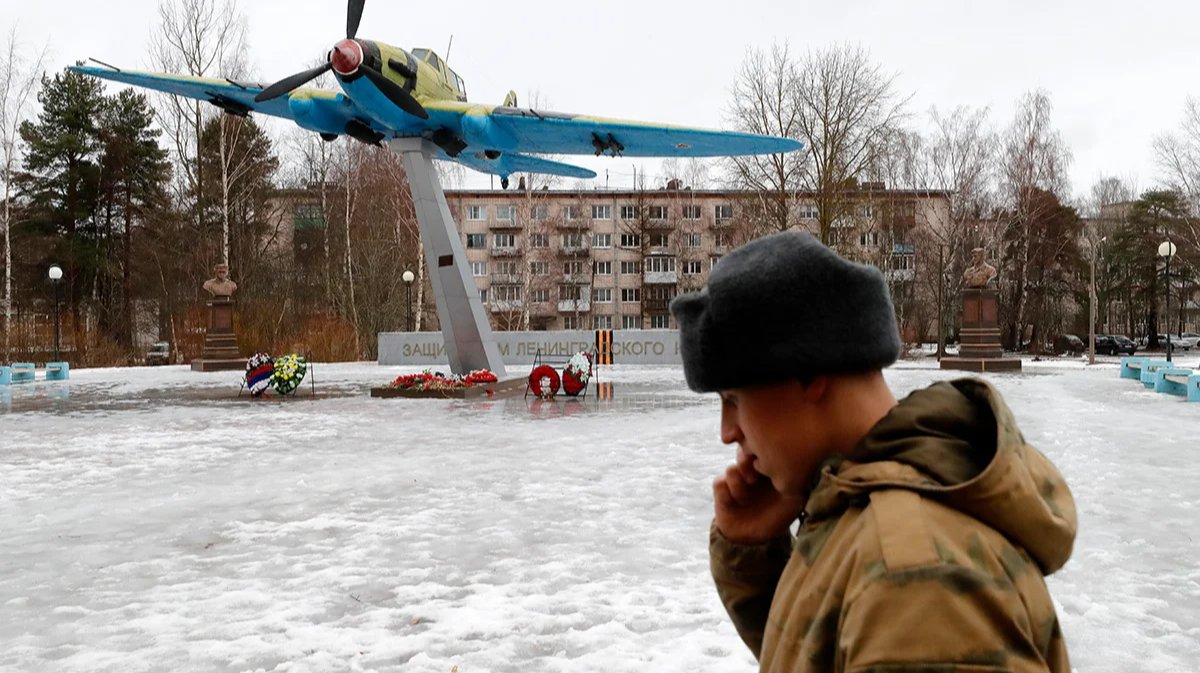Last month, Dmitry Setrakov, a former Russian soldier who had deserted his unit in Ukraine and fled abroad, was abducted by Russian servicemen in the Armenian city of Gyumri and forcibly repatriated to Russia where he faces criminal charges.
As the founder of Get Lost, a civic resistance project that “helps people evade conscription, leave the country, find asylum and much more”, and which assisted Setrakov, Grigory Sverdlin has been following the case carefully, and says it’s the first time that somebody Get Lost assisted to desert has been kidnapped from a third country.
Novaya Europe’s Yulia Akhmedova asked Sverdlin the reason behind the increasing number of desertions from the Russian army in Ukraine, and which countries he thinks are currently the safest destinations for them.

Grigory Sverdlin
founder of the Get Lost project
YA: How many people have you managed to get out of Russia? And have any of them returned?
GS: We’ve helped more than 400 people desert since the start of the war, but not all of them have left the country. About 25% decided to stay in Russia, despite being on the wanted list. Some are afraid of crossing the border, while others don’t know how they’d make a living abroad. These people have moved away from their homes, of course, but remain in the country.
YA: Have there been cases of deserters you helped being detained in Russia?
GS: There has only been one so far. He was on his way to the border when he ran into the military police. And even though he was in civilian clothing, he had forgotten to remove his combat gloves. The police spotted him because of them, took him back to the barracks, and at that point we lost touch. I don’t know if anyone else we helped to escape has returned. If so, they haven’t told us.
YA: On 20 December, your Telegram channel reported the Armenian prosecutor’s office saying Setrakov had been kidnapped, and not deported from Armenia to Russia. Why did Russia make such an effort to catch a single deserter? Are the Russian authorities really tracking everyone and willing to pursue people abroad?
GS: To be honest, we don’t know. He really is just a regular conscript. Setrakov’s case is probably just a coincidence. They were hardly chasing a specific person. I don’t think anyone went to Armenia just to pursue him. He was most likely kidnapped by people stationed at one of the Russian military bases in Armenia, in Gyumri or Yerevan. It was illegal, of course.

Russian soldiers near the 102th military base in Gyumri, Armenia, on 2 December 2013. Photo: Sasha Mordovets / Getty Images
YA: Maybe it was for show?
GS: I wouldn’t jump to conclusions. If we see two or three similar stories, then yes, we can talk of a trend to deliberately intimidate people, but for now it seems that this is just an outlier, and that Armenia remains a fairly safe place for Russian deserters.
YA: Were there any other attempts by Russia to repatriate deserters last year? How can Russia do it?
GS: As far as we know, that was the only case. As for ways and means, Russia has legal leverage, such as declaring somebody internationally wanted for desertion and demanding their extradition since they have committed a crime back home. Several people have been extradited from Kyrgyzstan that way, though they were political activists rather than people we’d helped. We don’t send people to Kyrgyzstan or Belarus, because we know they are risky.
YA: Did you manage to get anyone to EU countries last year? Can those countries accept someone who doesn’t have a visa, but doesn’t want to fight?
GS: Yes, we did, but, again, through Kazakhstan or Armenia. None of them had a valid Schengen visa, and I can’t discuss illegal border crossings. But there were multiple cases of people being granted political asylum. Unfortunately, it’s much more difficult for deserters to get it than for political activists.
YA: Is that the case with humanitarian visas too? How often is that question raised by people who get in touch with you?
GS: Yes, getting a humanitarian visa is as hard as getting political asylum for deserters. We’re in a weird situation whereby a photo taken at a rally in 2015 is sufficient, but a criminal case or being on the wanted list for deserting isn’t. We’ve been fighting European bureaucracy on this for a long time. We try to explain the situation and make sure there’s a clear path to asylum for deserters. This won’t mean millions of people turning up in the EU — there simply aren’t that many deserters.
YA: Does the number of people wishing to desert fluctuate?
GS: There has been a gradual increase. Whereas in April only 3% of inquiries concerned help with deserting, by October it was 18% (218 out of 1,197), meaning almost every fifth person was interested in deserting. That’s the highest it’s ever been. Of course, not everyone made up their mind to do so or went through with it, but those were the inquiries we received. It’s a much greater workload for us, because it’s one thing to advise a person on his situation, and quite another to help them desert and get across the border.
YA: What do you put the increase in inquiries down to?
GS: There are a number of factors.
First, support for the war has never been as high as the propaganda would have us believe. There was greater patriotic zeal at the beginning of the war, of course, but now there’s fatigue and disappointment, plus prices are rising and the wives of conscripts are starting to protest.
When it turned out conscripts weren’t going to be rotated, people lost hope and were suddenly ready for drastic measures such as desertion. And there are career officers who don’t want to fight against Ukraine, but can’t yet retire to the reserves, so they also desert. Then there are those who signed up for stupid reasons or in the hope of earning money. They were told they would only serve for a few months, and away from the front line, but in fact they were sent straight to the front and their contracts turned out to be open-ended.
YA: During the autumn mobilisation, there were reports of men being rounded up in the street and sent directly to the military recruitment office. How many inquiries did you receive in that period and how many people were you able to help?
GS: In October and November last year, we had more inquiries from draftees than from conscripts and contract soldiers. In total we helped 2,135 soldiers during that period. It was the most brutal call-up in recent Russian history. We recorded 73 raids, mainly in Moscow, but I think that’s just because more people know about us here in the capital. There must have been raids in other cities as well. There have been many egregious cases of beatings, people being called up the same day, which is illegal, raids which ignored those with student deferments or those with medical conditions. They even came for people during lectures at Moscow State University. To me, this all suggests they’re very short of people. It is impossible to achieve targets of 130,000 by conscription or 400,000 by recruitment. The authorities will do whatever it takes bar a new round of mobilisation.
Join us in rebuilding Novaya Gazeta Europe
The Russian government has banned independent media. We were forced to leave our country in order to keep doing our job, telling our readers about what is going on Russia, Ukraine and Europe.
We will continue fighting against warfare and dictatorship. We believe that freedom of speech is the most efficient antidote against tyranny. Support us financially to help us fight for peace and freedom.
By clicking the Support button, you agree to the processing of your personal data.
To cancel a regular donation, please write to [email protected]

